
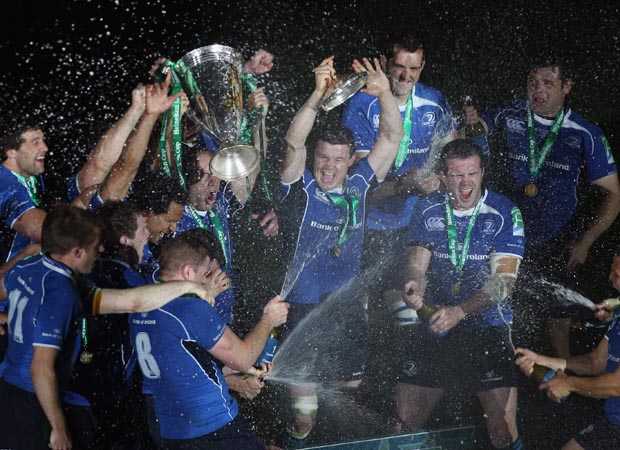
But for 19 years the Heineken Cup has provided the main narrative and battleground for European club rugby. Indeed, eventually we dropped the European Cup sub-title altogether and the competition became simply the Heineken, no more explanation needed. Surely the definition of a successful sponsorship.
And yet the first season of Heineken rugby was dodgy to be honest, a tad underwhelming. It wasn’t a rip-roaring success from the very off, indeed the Heineken Cup rather stumbled out of the starting blocks just weeks after Vernon Pugh had persuaded the IRB that rugby must be declared open and therefore professional. There were just 12 clubs and no English participants. Unsatisfactory three team pools with no home and away matches included a curious mix of clubs and provinces. Could that work long term?
The competition opened with a whimper and zero media presence on the Black Sea of all rugby places with a low key game between Romanian champions Farul Constanta and Toulouse and, to this day, nobody is quite sure who scored the first try although Toulouse flanker Didier Lacroix often gets a mention in dispatches.
The competition chuntered along and only really crossed my radar when I was in Wales one night and picked up highlights of a very entertaining 14-14 draw between Begles-Bordeaux and Cardiff which looked like fun and rather exotic, the old grey fox Philippe Bernat-Salles scoring a cracker.
Gates generally were poor – just 7,500 turned up to Lansdowne Road to watch Leinster’s semi-final with Cardiff – while the final itself attracted just over 20,000 spectators to Cardiff Arms Park where a fairly routine game at least enjoyed the excitement of extra-time, Toulouse sneaking home 21-18. And, yes, the Toulouse coach that day was Guy Noves, the same man who has masterminded all 19 of Toulouse’s Heineken campaigns.
Incidentally I found myself covering the final for a prominent national daily because the rugby correspondent was not yet convinced the competition was entirely worth reporting. He wasn’t alone. The jury was still very much out.
The quantum leap came the following season with the admission of English clubs, an expansion to 20 teams and most important of all the emergence of a mysterious all-singing, all dancing French club in Brive who brought a glamour and oodles of X-factor to proceedings.
Brive could be brutal but also played rugby from the gods and were accompanied by noisy fans who armed themselves with fireworks and flares wherever they went. A Gallic whiff started entering our rugby consciousness. They slaughtered mighty Leicester in front of 40,000 sunbaked fans at the Arms Park in the final and the competition was on its way even if the trophy itself got trashed when Alain Penaud fell to earth with it while urban surfing on top of the Brive coach at some unlikely hour that night.
Next came the switching to an expanded home and away format in the pools.
Imaginations had been fired and a new brand of rugby tourism, aided by the emergence of Ryanair and easyJet, took off. Suddenly we were all experts on far flung French and Italian clubs – and their associated airports as well – while the rarely-visited Irish strongholds of Limerick and Belfast joined Dublin on the bucket list of must-visit venues.
Favourite hotels and watering holes were established with tabs seemingly left running from one season to another. To the disappointment of many, the Scottish Borders experiment failed to take off which means such as Melrose and Hawick were excluded from the party – rugby towns that would have adorned the new order.
The stories and controversies started hitting us from all directions. Brive’s fights on and off the field with Pontypridd; Bath’s shock win over the Brivistes in the 1998 final; the Premiership clubs boycotting the 1998-99 competition after sniffing a success and wanting more of the financial action; Ulster’s glorious march in that 1998-99 season when they had to beat Toulouse in their pool and quarter-final before accounting for Stade Francais and then Colomiers in the final. And, of course, the extraordinary rise of Munster.
The absolute masterstroke, the unheralded genius of the Heineken Cup was introduced around this time, the novel concept of the two best runners-up qualifying for the quarter-finals which was decided upon when the competition expanded to 24 teams in the 1999-2000 season.
I strongly suspect this was originally a hurried compromise agreement caused by the desire to expand the competition to six four-team pools and the logistical need to produce eight quarter-finalists but, whatever, at a stroke the change animated the pool stages to a remarkable degree. Suddenly all sorts of teams had a chance of claiming those seventh and eighth places and the maths became very complicated in rounds five and six as you started delving into unlikely scores of scenarios.
Some hated it, especially stressed out commentators trying to work out the state of play, but most of us loved the added interest it provided.
The Heineken Cup was a big adventure. I recall one Leicester Tigers match at Pau who, behind Biarritz, were then the most Basque of all the French clubs in the Heineken. Down the far touchline a 12ft high chicken wire fence had been erected which seemed a bit over the top until the game started and Tigers left wing Leon Lloyd was stoned by over excitable fans after scoring a brilliant try.
Yet an hour after the game these same fans were sitting with the Tigers squad along massive trestle tables dishing out cassoulet and persuading Austin Healy – in his pre Strictly days – and Graham Rowntree onto the stage to try their hand at Basque dancing. Alas my camera jammed as I tried to capture the moment.
English clubs returned for 1999-2000 and were soon putting plenty of stick about. Northampton beat Munster in the final even if the Munster men and the red army of support had provided the story of the season with their epic win over Toulouse in sweltering Bordeaux a few weeks earlier and then it was the turn of Leicester Tigers under Martin Johnson to take centre stage.
Diego Dominguez – surely the sweetest striker of a rugby ball in history – kicked 30 points against them in the 2001 final at the Parc des Princes and still ended up on the losing side as Leicester found another gear while, the following year, Tigers – and, in particular, Neil Back – broke Munster hearts with a 15-9 final win at the Millennium.
The tournament rolled on. There was the Munster miracle match against Gloucester at Thomond when a 27-point win, which had to include four tries for the bonus point, were required by the home team to qualify for the quarter finals instead of the visitors. And, of course, that is exactly what Munster conjured up! The 2003-4 season was vintage featuring probably the greatest single Heineken match I can recall – Wasps’ 37-32 semi-final win over Munster at Lansdowne – and then one of the best finals when they squeezed past strong favourites Toulouse.
The latter is remembered by many for Clement Poitrenaud’s moment of madness that gifted Rob Howley a try although, if you look closely at it again, the ball did brush the touchline and a TMO would have disallowed the try today, which is no consolation to Poitrenaud whose considerable career is still defined by that apparent howler at Twickenham.
I prefer to remember the game for one of the most phenomenal individual displays the Heineken Cup has ever seen, from Wasps flanker Joe Worsley who often saved his best for the Heineken. His aggressive defensive display that day has only ever been equalled by Jacques Burger for Sarries against Clermont last month.
Then came the switch, considered radical at the time, from the free-to-view BBC to the pay-to-view Sky which came into effect for the 2004-05 season. With the tournament gathering momentum it was a risk but Sky have made a virtue of their Heineken coverage and many of rugby’s TV innovations have come from their determination to give the Heineken Cup the highest possible profile.
Ever onwards. Munster fans were finally put out of their agony in 2006 when they took the Cup by defeating Biarritz at the Millennium and the following year we saw the last win by an English club, those canny cup campaigners Wasps again producing their best when it was most needed to defeat Leicester.
Since then, despite envious English fingers often being pointed accusingly in the direction of the cash rich French, it is the Irish provinces that have dominated with four of the last six titles, three going to Leinster who morphed from chronic under-performers in the Heineken to cup giants with their second-half comeback against Northampton in 2011 providing one of the great Heineken moments.
You can argue it is not money, per se, that heightens the likelihood of success although the ability to buy-in a greater number of quality players certainly helps to strengthen squads.
The real gripe was how the big three Irish provinces – and indeed the Welsh, Scottish and Italians – could cruise through their domestic season resting key players and keeping them fresh for the big Heineken Cup games.
The system that had evolved erratically from the dawn of professionalism plainly wasn’t providing a level playing field and Premiership Rugby, along with their French counterparts, regularly vented their displeasure and finally gave notice two years ago that they would be withdrawing from the competition once the current contracts ran out in May 2014.
It was that, and the always pressing need for a greater financial return from a competition that had, perhaps, undersold itself commercially, which sparked the debates, rows and threats of Anglo-Welsh and/or Anglo/French leagues before sanity returned and plans for a shiny new competition under new ownership was announced.
The basic concept of a pan-European tournament is entirely sound and always will be, it’s just who runs it and how that was under dispute.
The Heineken name may disappear from the European scene next week but the memories will live on.


British and Irish Lions
Jamie George in as British and Irish Lions hit by double injury blow

Latest News
Follow The Rugby Paper online…

British and Irish Lions
Dean Richards: Pollock has to do tough stuff for the British and Irish Lions, too

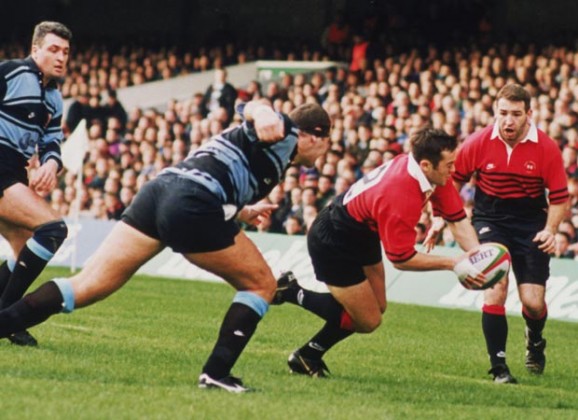
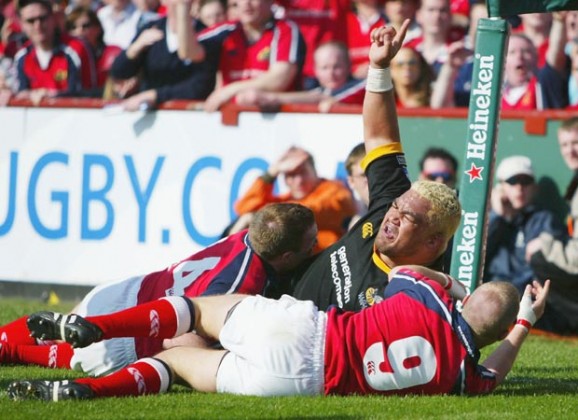
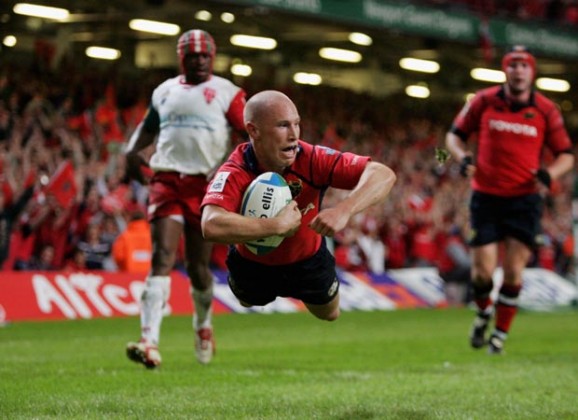


















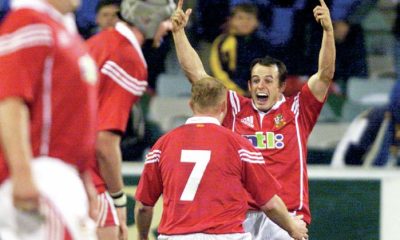



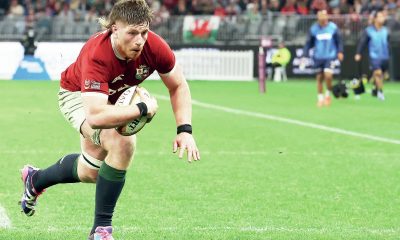



You must be logged in to post a comment Login